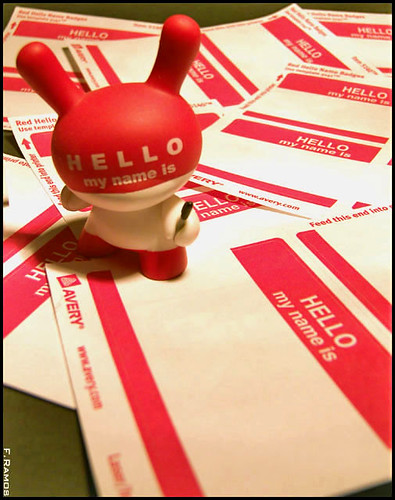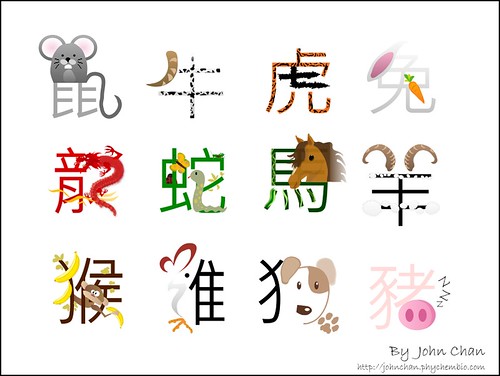"The ancient Chinese devised a method of reading the life of a person from his birth year, month, day, and hour. This information is displayed in the form of four columns each consisting of two characters. Each column is called a Pillar. The four pillars together will contain eight characters. This method of Life Reading is called "The Four Pillars of Destiny" or simply "The Eight Characters".
Ancient Chinese used the combinations of two sets of words to denote time. A year is represented by two words. So is a month, a day or an hour.
The first set of words is the set of the "Ten Heavenly Stems". They are the yin and yang components of the Five Elements: Yang Wood, Yin Wood, Yang Fire, Yin Fire , Yang Earth, Yin Earth, Yang Metal, Yin Metal, Yang Water, Yin Water.
The second set of words is the set of the "Twelve Earthly Branches". They are more popularly represented by the twelve animals of the Zodiac: Rat, Ox, Tiger, Rabbit, Dragon, Snake, Horse, Goat, Monkey, Rooster, Dog, Pig. "(From astro-fengshui.com)
These characters were extremely important in determining a person's marriage and friendship in the case of "laotongs". These eight characters were matched at birth, and before making destined decisions, they would be paired up with other people to see if they made a good match, such as a person's future husband/wife. i think this is a very interesting way of fortune- telling.

